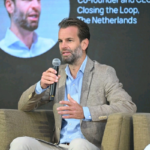A couple of months ago during the OECD’s Global Forum on Responsible Business Conduct,1 I heard a new term: SDG washing. After green washing and blue washing – using a UN logo to signpost sustainability without doing much – the term SDG washing points to businesses that use the Sustainable Development Goals to market their positive contribution to some SDGs while ignoring their negative impact on others. For example, a car company may market their electric cars as saving the climate (SDG 13↑). Yet, the cobalt in their batteries may be mined by five-year old kids in Congo (SDG 8 ↓).
It is clear that the world will never reach the SDGs without businesses. While businesses can make positive contributions, such as creating jobs, finding innovative solutions for climate challenges or contributing to human capital development, they can also cause or contribute to negative impacts, such as exploiting labour in supply chains, damaging the environment or engaging in corrupt practices. Businesses should pay due attention to ensure that they avoid undermining the SDGs by causing or contributing to negative impacts.
Civil society organisations have asserted that “business responsibility for respecting human rights is too often viewed only as a matter of compliance and risk management… [which] underestimates the hugely positive development impacts that will be achieved through improved treatment of the millions of workers and communities affected by business activities around the world.”2 Indeed, I have seen companies use the following excuse: We may have forced labour in our supply chain, but we have a great scholarship programme for girls. That is a no go. People have criticised companies for cherry picking — basically profiling certain positive effects on a particular SDG and ignoring any negative impacts. Companies cannot compensate for doing harm on one SDG by doing well on another SDG. How, then, should companies proceed?
On the one hand, risk-based due diligence processes grounded in the UN Guiding Principles for Business and Human Rights and the OECD Guidelines for Multinational Enterprises can help define expectations. Companies should prioritise their efforts on where their negative impacts on the SDGs are most severe.
On the other hand, profiling positive contributions to certain SDGs is fine and good, and where business can make a lot of money. In other words, in doing well by doing good, business can deliver significant value to the SDGs. The Business and Sustainable Development Commission report Better Business, Better World stated: “Achieving the Global Goals opens up US$12 trillion of market opportunities in the four economic systems examined by the Commission. These are food and agriculture, cities, energy and materials, and health and well-being. They represent around 60% of the real economy and are critical to delivering the Global Goals. To capture these opportunities in full, businesses need to pursue social and environmental sustainability as avidly as they pursue market share and shareholder value. If a critical mass of companies joins us in doing this now, together we will become an unstoppable force. If they don’t, the costs and uncertainty of unsustainable development could swell until there is no viable world in which to do business.”
Ultimately, companies should do their due diligence on all SDGs to avoid undermining these goals. This is the essential baseline. Just think about what not having child labour in the supply chains would mean for the SDGs. A focus on managing the negative impacts on the SDGs is most urgent. This approach, taken together with the focus and positive impacts on certain SDGs, is a recipe for businesses to maximise their contribution to the SDGs.
Roel Nieuwenkamp, Chair of the OECD Working Party on Responsible Business Conduct
1.↩See also: Contributing to the Sustainable Development Goals through responsible business conduct, 2017 Global Forum on Responsible Business Conduct, Session Note.
2.↩ Excerpt from an open letter to UN Secretary-General António Guterres and UN Private Sector Forum 2017 Participants by Business & Human Rights Resource Centre, the Danish Institute for Human Rights, the Institute for Human Rights and Business, the International Corporate Accountability Roundtable, Oxfam International, and Shift








